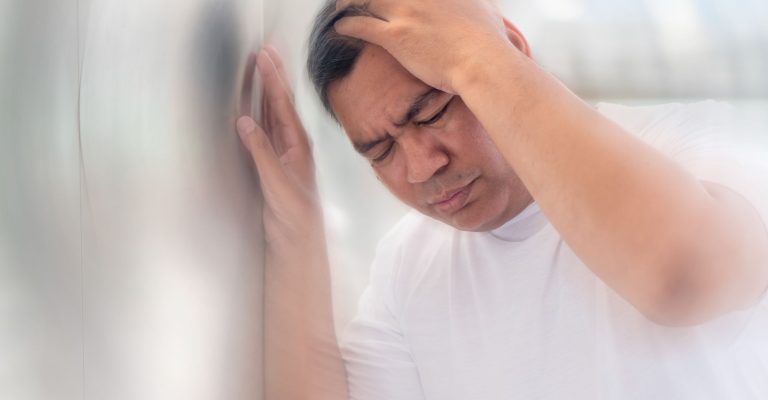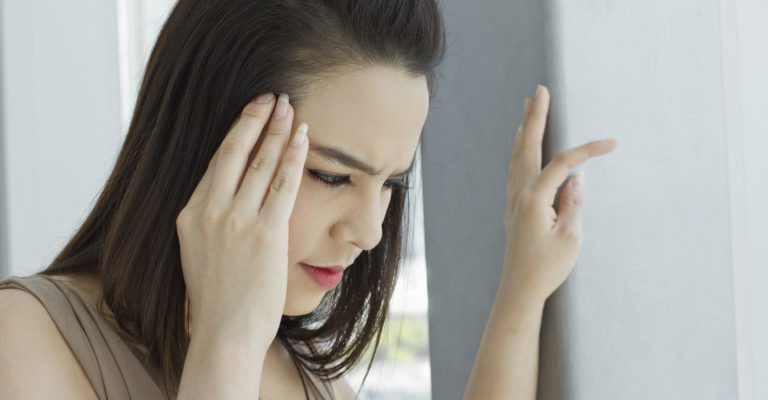
Although dizziness is a prevalent complaint among stroke patients, it is seldom addressed as the primary issue in rehabilitation programs. As a result, many patients have dizziness that lasts beyond recovery and interferes with daily tasks.
Because of the complexities of this symptom, it is critical to collaborate closely with your medical team to discover the reason and develop a treatment strategy to address it.
This article will examine the causes, treatments, and how long dizziness last after cerebellar stroke to help you have an informed conversation with your doctor. You’ll also discover how vestibular treatment might assist.
Everyone’s dizziness after a stroke looks and feels different. Some individuals may get a sensation that the whole room is spinning, while others may temporarily lose their sense of balance.
Dizziness may be caused by a variety of factors, each of which necessitates a unique treatment plan. This is why a medical examination is required.
Cerebellar strokes, in particular, are known to produce balance problems, which may cause dizziness and vertigo (more on this soon).
Dizziness may also be caused by strokes in other parts of the brain, such as the occipital lobe or the brain stem (which is related to the cerebellum). Because every stroke is unique, there are no hard and fast rules on which areas of the brain might induce dizziness if they are affected.
Working with your medical team to establish the particular reason and best course of therapy for you is the finest thing you can do.

It’s important to explain your dizziness in detail to your doctor since it may give valuable information.
Dizziness is often associated with lightheadedness, feeling dizzy or unstable, or a lack of balance. Vertigo is a spinning feeling that you may experience.
When dizziness comes after a stroke, it may often be caused by too much movement in your surroundings, such as being in a busy supermarket. It may also be activated when you move, such as when you get up or drive.
Take note of the severity and timing of your dizziness. If you experience abrupt dizziness, get immediate medical assistance since it might be an unusual indicator of a stroke.
Maintain a healthy amount of physical exercise and nutrition. You may feel dizzy after a long day due to dehydration, or you may feel dizzy if you just began a new diet that produced low blood sugar.
You are the authority on your own body. When you have dizziness after a stroke, pay careful attention to how you feel and what you’re doing. To be safe, use caution if dizziness strikes unexpectedly and seek emergency medical treatment.
As previously stated, a cerebellar stroke is especially recognized to be connected with post-stroke dizziness. The cerebellum is in charge of voluntary muscle activation and coordination. This assists the body in making critical postural modifications in order to maintain balance.
The cerebellum controls motor neurons to adapt to alterations in body posture through inputs from vestibular receptors and proprioceptors, helping the individual to stay upright and stable.
Because each stroke is unique, each recovery will be unique as well. This implies that it is difficult to anticipate how long does dizziness last after cerebellar stroke for any specific individual.
However, just because recuperation time is difficult to anticipate does not imply you should feel helpless. Seek treatment from your medical staff as soon as possible and do any therapeutic activities that they recommend. This will improve your chances of healing.
The treatment for post-stroke dizziness is determined by the etiology. Certain drugs may be provided, or your healthcare practitioner may demonstrate certain ways to assist you in reducing dizziness caused by position changes. Vestibular therapy may also be used to address post-stroke dizziness caused by the brainstem and/or cerebellum.
Vestibular therapy, a subset of physical therapy, treats abnormalities in the vestibular system. Vestibular treatment may assist stroke patients in reducing dizziness with head movements, sensitivity to hectic situations, and loss of balance.
The vestibular system is a complex network of information that provides motion, head movement, and body awareness signals to our brains. While that information is being processed, the vestibular system ensures that the body stays balanced and stable, also known as equilibrium.
Vestibular therapy retrains the vestibular system and reduces sensitivity to visual movement by employing particular exercises that include head and eye motions. This helps to re-educate the body on how to coordinate movement and balance as the head moves. Vestibular treatment employs two ways to effect these changes and increase your capacity to do daily activities or accomplish job responsibilities: habituation and adaptation.

Exercises in vestibular therapy may give the brain the stimulus it needs to reorganize itself and recover from a balance issue.
The vestibular system is crucial to human vision, and gaze stabilization exercises aid in the restoration of the Vestibulo-Ocular Reflex (a reflex that, when impaired, can cause disorientation and vertigo).
These exercises aid in the reduction of dizziness by exposing the individual to the activity that disturbs them, such as bending down to pick something up off the ground. The idea is to build a tolerance to the point where such movements no longer influence your equilibrium.
When your dizziness has subsided, you may progress to balancing and aerobic workouts to develop your endurance. The purpose of exertional training is to gradually restore the person’s stamina to its pre-stroke level or as near to it as feasible.
Patients who have survived a stroke may have less dizziness after the event if they get the appropriate therapy. Vestibular treatment has the potential to play a significant part in assisting patients to regain their independence and experience fewer symptoms of dizziness and imbalance as they go about their daily lives.